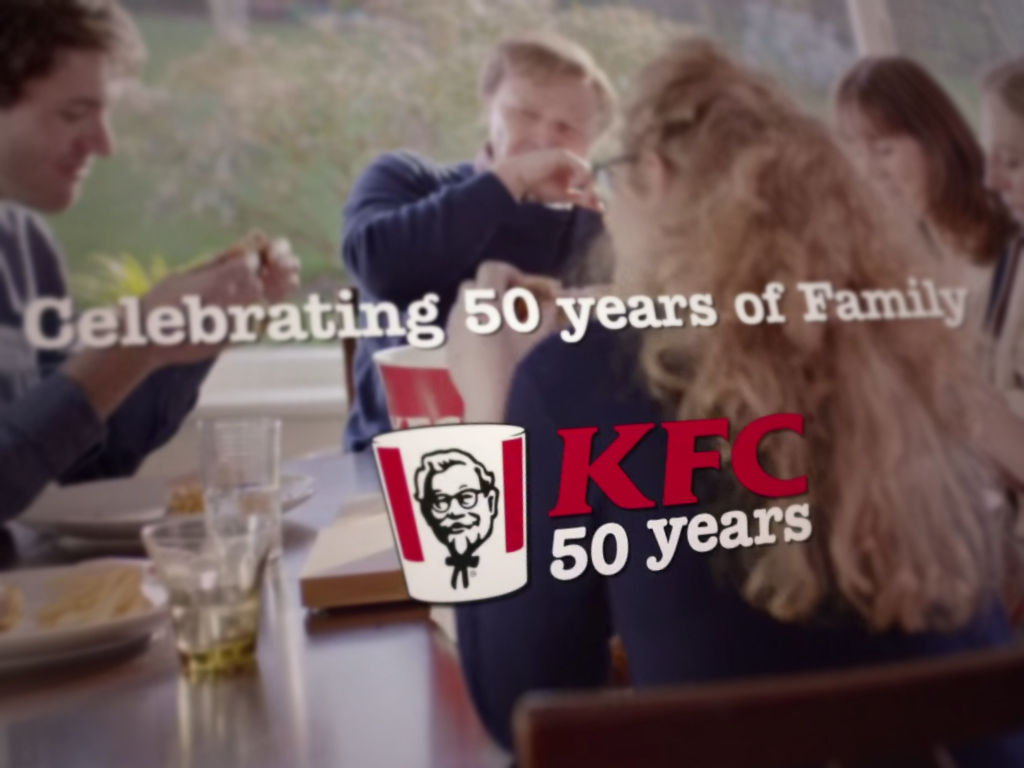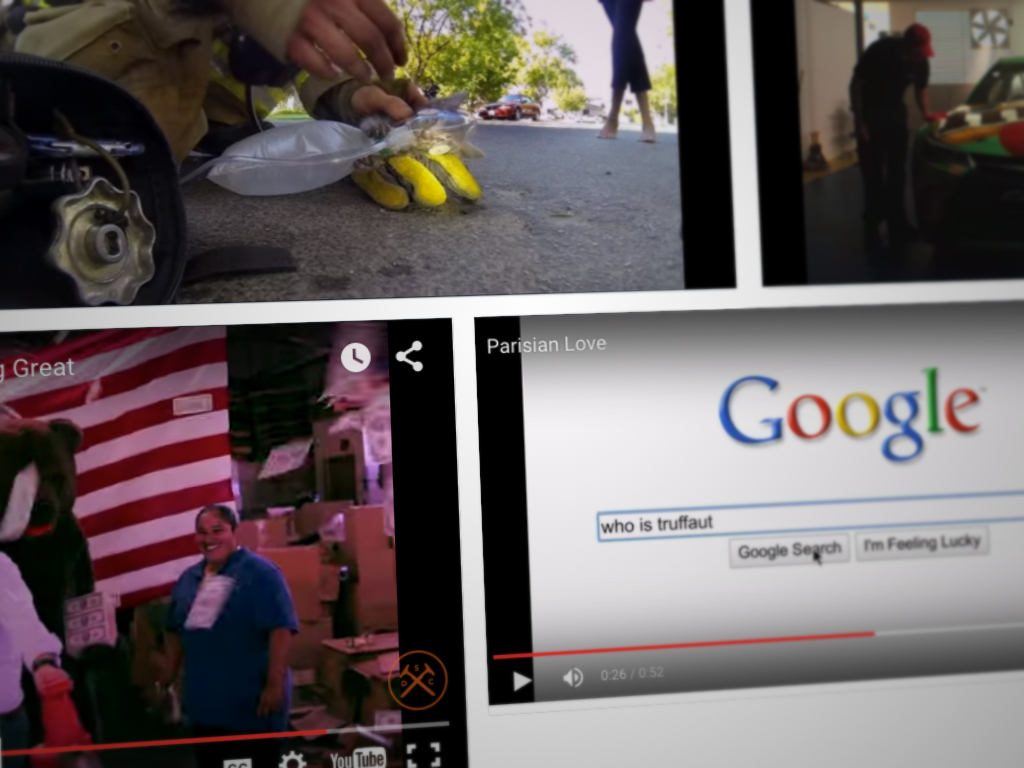The relationship between beloved brands and their consumers can be strong and inspirational. We interact with some every day of our lives. It’s a relationship that can be valuable, touching, and often emotional. To reinforce this, brands should look to capture the story of those emotions and empower brand-consumer relationships.
A few years can feel like a long time in digital marketing. Consider this Google Chrome advertisement from 2009:
Ingeniously put together, and undoubtedly informative, but somehow, the ad already feels a little outdated. In the rich and hugely diverse world of digital media consumers now have access to, it seems a little dry, even boring.
The question we have to ask here is would users seek out a video like this? Would they click that thumbnail on YouTube? Would they skip it?
What did you do?
Here’s another advert, also from Google Chrome, just a couple of years later.
https://www.youtube.com/watch?v=R4vkVHijdQkYou may have seen or heard about this one before. ‘Dear Sophie’ won a great deal of attention in the media, and is often cited as a case study in emotional storytelling even to this day.
The difference lies in the emotional context. In ‘Dear Sophie’, we’re not being presented with a product, but with an vision of what that brand means for consumers and how they feel.
The notion was repeated with Google’s approach to advertising at the 2010 Superbowl. Prior to the event, the company tested a dozen videos on Youtube, choosing to air the one which attracted the most views.
The change in Google’s approach to advertising is a fantastic example of how the brand has adopted a much more customer-centric approach – one which seeks to engender loyalty by nurturing consumers’ emotional connections with a brand.
Emotional Storytelling
In the last few years in particular, a number of brands have recognized the importance of associating brand, with positive emotions. Providing an emotional context in marketing campaigns makes adverts more engaging, and more impactful.
Storytelling is key. People relate to life stories, much more so than content that features or promotes a product. When it comes to a video advertisement, which people have a choice to view, or skip, they would rather be told a story they can relate to than have products pushed at them.
Here are a couple more examples of videos designed to engage an emotional response.
Spotify — Her Song
Skype — Born Friends
Encouraging Positive Emotions
The best examples of emotional storytelling depict a vision of how brands can positively enhance the lives of consumers. Brands do have a relationship with their consumers, in many cases interactions take place every day, and the emotional contexts of their advertising should reflect the most positive aspects of those relationships.
There is compelling evidence suggesting that emotions play a crucial role in consumer buying journeys. Consider the following findings in a study by Antonio Damasio, Professor of Neuroscience at the University of Southern California, published in Psychology Today:
- fMRI neuro-imagery shows that when evaluating brands, consumers primarily use emotions (personal feelings and experiences) rather than information (brand attributes, features, and facts).
- Advertising research reveals that emotional response to an ad has far greater influence on a consumer’s reported intent to buy a product than does the ad’s content – by a factor of 3‑to‑1 for television commercials and 2‑to‑1 for print ads.
- Research conducted by the Advertising Research Foundation concluded that the emotion of “likeability” is the measure most predictive of whether an advertisement will increase a brand’s sales.
- Studies show that positive emotions toward a brand have far greater influence on consumer loyalty than trust and other judgments which are based on a brand’s attributes.
After all, consumers choose to pay more for brand name products. It’s a loyalty spawned from the emotional connection they have with a brand.
In 2013, Facebook conducted a study of over 600,000 users that concluded that positive messages in a person’s news feed did reinforce further positive emotions. It found that users who were greeted with positive messages, shared and posted positive messages of their own, and those greeted with more negative messages shared and posted more negative ones.
It shows that by constantly engaging positive emotions, brands can nurture more positive engagement around their brand.
Branding
Branding is one area where emotional advertising can provide real value. If a brand is an identifiable entity which enables consumer trust and loyalty, the emotions with which consumers associate that brand become an important aspect for brands to nurture.
Take Coca-Cola, the brand identify so strongly with the concept of ‘happiness’ that it forms the basis of their global advertising and content strategy.
After all, emotions are universal. Stories are universal. For brands like Coca-Cola that are looking to thrill a global audience, winning those emotions isn’t just a strategy, it’s a arena in which they compete for a stake in consumer affections.
Consumer emotions, may become a competitive space. In technology for example, you can imagine how brands such as Google, Facebook, and Skype all compete for similar emotions around friendship and connectivity.
The Future Of Emotional Storytelling
It may be that in future years, that the capacity for emotional engagement from consumers becomes more crowded. Crossover between various ideals and values which brands hold true may mean that consumers may compare certain ads.
Take music subscription services as an example. If one service manages to identify with a stronger sense of musical passion or nostalgia, that could convincingly be the impetus driving consumers to one service over another.
“Big brands need to invest now in storytelling and emotional marketing because in the human brain, and in its decision-making capacity in particular, emotion beats reason,” said Andy Maslen, author of “Persuasive Copywriting: Using Psychology to Engage, Influence and Sell”. “The best ad campaigns have always led with stories, but the rise of globalization has led to increasingly abstract, conceptual or image-driven advertising where the idea is paramount, and the brand, let alone the story, is pushed firmly into the background.”
Many brands are stepping up their efforts, Maslen said.
“Savvy brands like Coca-Cola are creating strong emotional connections with their customers through simple stories couched in everyday language,” he said. “The kind of language people can get hold of without a marketing dictionary, and respond to emotionally. Why is emotional marketing important? Because information leads to analysis but emotion leads to action.”
If brands want to compete for consumers’ emotional engagement they need to invest in emotional storytelling now. Reinforcing and nurturing an emotional context within consumers’ minds, in every aspect of their content strategy.
What are your favorite examples of emotional storytelling?




